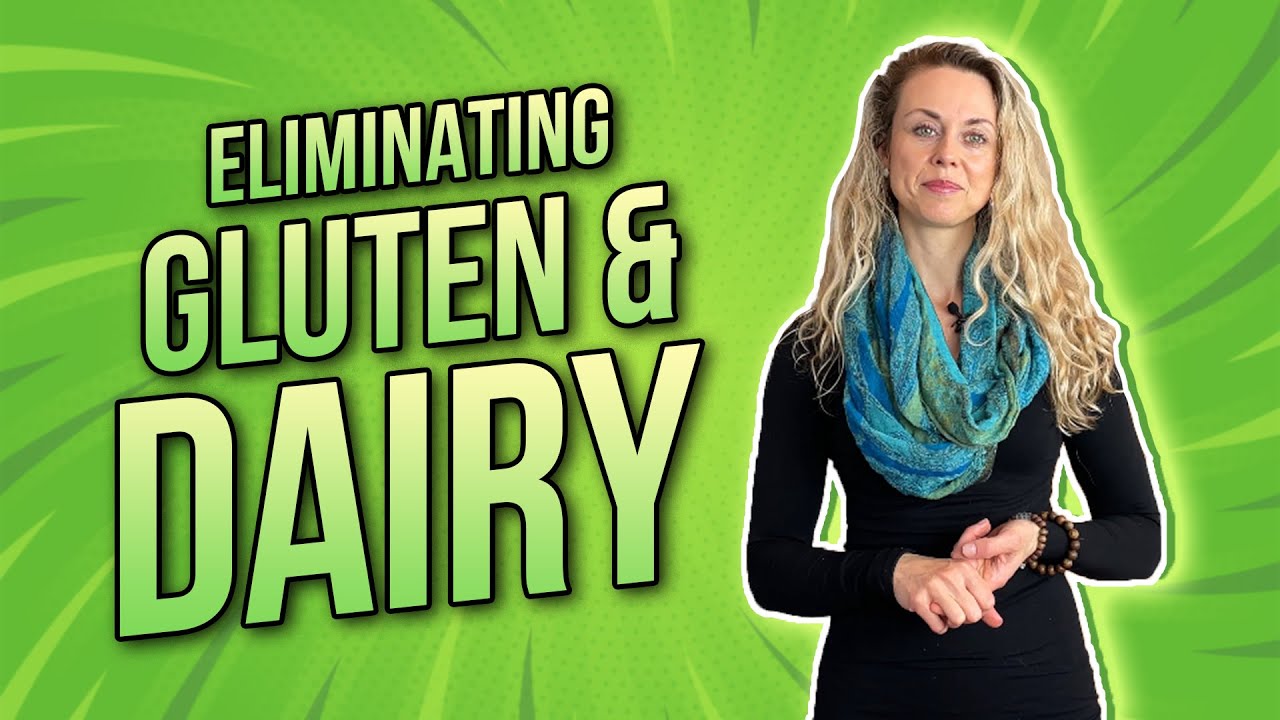If you haven’t considered eliminating gluten and dairy and you have health concerns, then read on. They may be contributing to your emotional, mental, and/or physical health issues. I’m sure you’ve heard a friend or family member say they’ve gone gluten-free or dairy-free, and they feel much better. Well, you simply don’t know if that will be the same for you until you eliminate it for yourself. And, doing a full or modified elimination diet versus doing a food sensitivity test can be way more valuable. Let’s discuss the different categories of adverse food reactions that you can have and how you could properly eliminate and reintroduce gluten and/or dairy.
Rather watch or listen than read?
Food triggers are one of the most overlooked things that can be a major contributor to many different health concerns that you may be experiencing. Some common symptoms of gluten and/or dairy can be things like puffiness, bloating, digestive issues, joint pain, dark circles under the eyes, and general inflammation. Of course, these could be associated with other things, but this would be why you’d want to explore if them to see if they’re an issue for you. There are three adverse food reactions.
1) Food Allergy
This is something you most likely would know that you had. This would be an immune reaction that could be mild to severe and it would happen immediately after you’ve consumed the food.
2) Food Intolerance
This could be something like lactose intolerance, for example, where it’s a non-immune reaction, but it means that your body does not have sufficient enzymes to be able to break down the food.
3) Food Sensitivity
This can happen from hours to days after you’ve consumed food that you might be sensitive to. This is where the GI system then impacts the immune system, causing all kinds of issues in your body from pain, sleep disturbances, puffiness, and so on.
How to do an Elimination
Foods stay in your system for different periods of time. Dairy stays in your system for approximately two weeks. Gluten stays in your system for approximately three weeks. So, the best way to do a modified elimination diet of gluten and dairy is to eliminate them both for three full weeks. That means not even a bite of bread or a beer or creamer in the coffee; zero of each of those foods for the entire three weeks.
How to Reintroduce
Then you will begin the reintroduction process which is the most important part. This is the part that most people forget, and it should be very intentional and be very structured. You would start with introducing one food at a time. Say for example you are going to reintroduce gluten, you would have a piece of bread in the morning and a piece of bread in the afternoon. Make sure to keep the ingredients very simple so it’s a clean source of whatever you’re reintroducing. Now you’ve had that twice on your first day, you’re going to wait an additional three days without having any more gluten. You will track all of your symptoms for the next three days; everything from digestive issues to pain and inflammation to sleep to mental and emotional health, and urinary complaints. That is going to tell you if you are sensitive to gluten or not.
If you have any kind of reaction, then you know that your body’s having a low level of immune response to that particular food. After you have finished that, then you would move to dairy. You would have it twice in one day, wait the three days, and determine if it is appropriate for you.
By doing this experiment of one, you are finding out the information yourself and know if these things are an issue for you. I think assessing food triggers is one of the most fundamental things that we should all do as part of evaluating what we’re putting in our body and how it’s impacting our health.
Reach out for a 15-minute FREE discovery session to see how we can help you on your journey.
For more content, make sure to subscribe to our YouTube channel here.
Other things that may interest you:
What Should You Eat For Chronic Pain? | Nutrition for Chronic Pain

